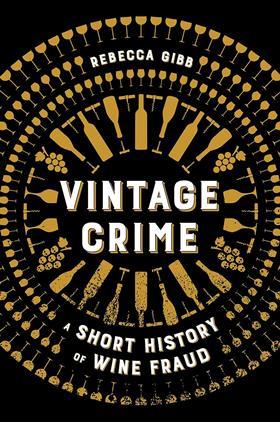Uncorking infamous tales through the grapevine
Vintage Crime: A Short History of Wine Fraud
Rebecca Gibb
£25, University of California Press
★★★★✩
Wine, to oenophiles, is art in a glass. As with most art, enthusiasts and investors alike want to spend a lot of money on it, which in turn attracts fraudsters. The efforts of the latter are the subject of this book by Rebecca Gibb, a Master of Wine.
Gibb’s scope is ambitious. She begins in Roman times and traverses the next two millennia, giving almost as much history of viticulture and gastronomy in general as she does of associated legal vicissitudes.
She demonstrates that for much of wine’s history, the main problem has been adulterated wine. All manner of substances have been added over the centuries. Some were not harmful, but nonetheless left the resultant drink far removed from just fermented grape juice. Others were toxic, most significantly lead, which plagued the Romans and may even have caused the premature death of the wine-loving Ludwig Van Beethoven.

Gibb writes in a popular style and, not being a lawyer, eschews black letter legal analysis. She includes many interesting legal facts nonetheless, including the surprising point that the French first legislated on wine content as late as 1889. Indeed, much of the present system of French classification dates from the 19th and 20th centuries, as authorities sought to counter misrepresentations as to the origin and content of wines. That problem reached a crescendo with serious riots in the Champagne region in 1911 (which were also partly due to fallout from the phylloxera disaster).
Despite the efforts of French and other authorities, horrendous problems continued, such as falsified Bordeaux wine in the early 1970s, or the Austrian anti-freeze scandal of the 1980s. More recently, the wine world has suffered the oeuvre of the conman Rudy Kurniawan (the subject of a 2016 Netflix documentary, Sour Grapes), and the misfortunes of the US billionaire Bill Koch, who was duped into thinking he had purchased some extraordinarily rare bottles. Koch’s resultant litigation over what he called the ‘moose piss’ he had been sold exposed many malpractices in the fine wine industry.
The book contains few apparent errors, though in an effort to provide colour Gibb states several times that a pilot flew ‘fighter jets’ in the Great War. Overall, though, the book is highly recommended – preferably paired with a glass of New Zealand Pinot Noir, one of Gibb’s specialisations.
James Wilson is an independent legal author. His most recent book is Lord Denning: Life, Law and Legacy (Wildy, Simmonds & Hill, 2023)































No comments yet